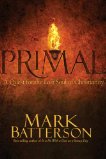SATURDAY November 27, 2010
Wisdom = Holiness dressed in work clothes
Proverbs is a great read. In poetically memorable words and phrases, God uses Solomon to challenge us to walk in wisdom.
Verses 10 and eleven of chapter 2 clearly describe the fact that finding wisdom involves the heart…it is not something that resides on the surface…wisdom is more than skin-deep. Wisdom must find its place in the heart. The heart is that spot within humans that houses emotion, passion, and love, especially love for God.
In the same breath, Solomon states that knowledge will be pleasant to your soul. The soul represents the basic personality…the essence of a person. The final result of growing in knowledge and understanding is Godly wisdom. When God has helped us to obtain His wisdom, the practical result is discretion. Solomon said it best, “Discretion will protect you, and understanding will guard you.”
Wisdom and holiness go hand in hand. If we gain Godly wisdom, knowledge, understanding, and discretion, holiness becomes the end result. By holiness, I mean ethical living born out of a heart to please God and to walk in His ways.
Wisdom equals holiness dressed up in everyday works clothes. Living out Godly wisdom in the marketplace of life requires intentional, hands on work. Living righteous, holy, and God-pleasing lives involves strenuous labor because we live in a world that despises and rejects our Lord and all that He stands for.
I remember working out in the fields during my teen years. I pulled weeds, de-tassled corn, “trained” hops (a good topic for another blog), changed sprinkler lines in wheat fields, and many more dirty, muddy, hot, and sweaty tasks. Sure, I probably complained a bit here and there, but I still remember that feeling of satisfaction, knowing that my hard work would pay off on pay day. But the financial gain paled in comparison to the feeling of working hard and accomplishing something on my own.
As followers of Christ, we possess a giant tool-box containing everything we need for life and Godliness. However, we will accomplish nothing, we will gain no true satisfaction, until we put on the work clothes of wisdom, roll up our sleeves, and walk in the holy, obedient life to which God has called us.
